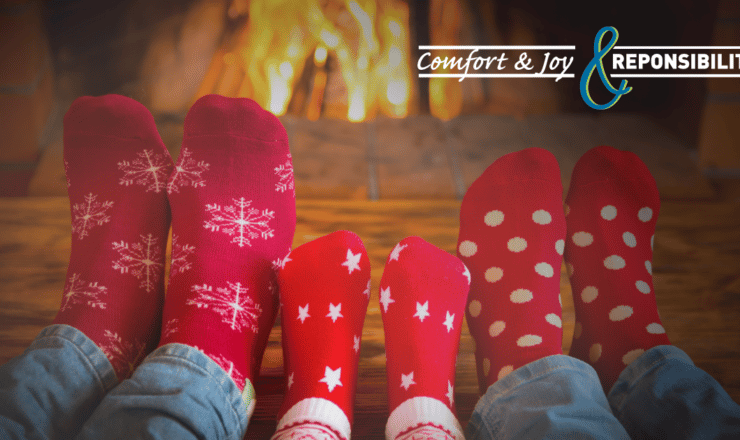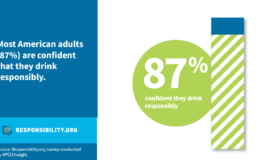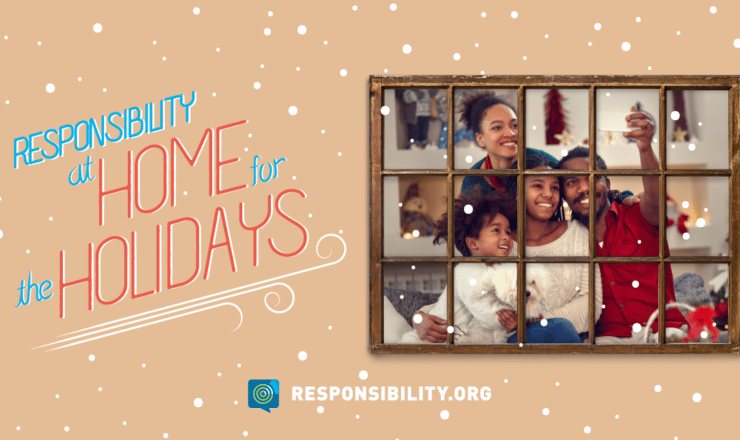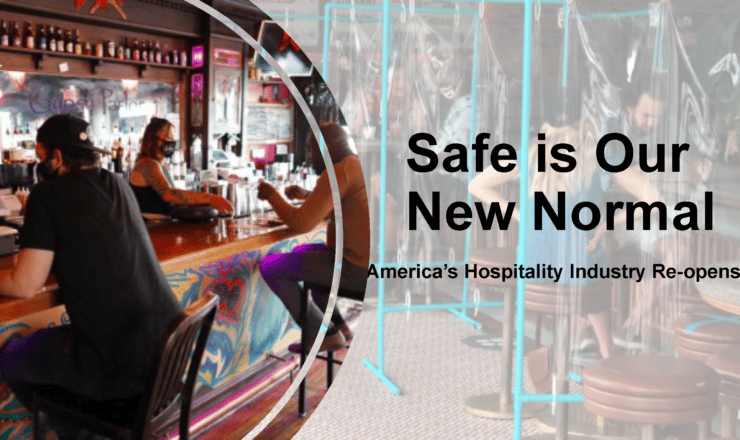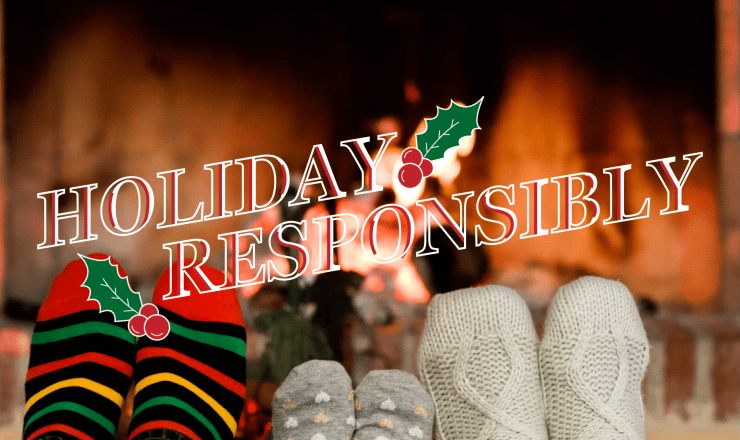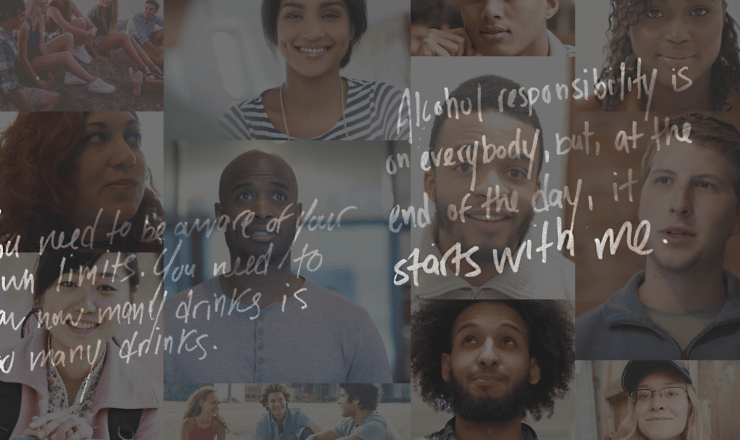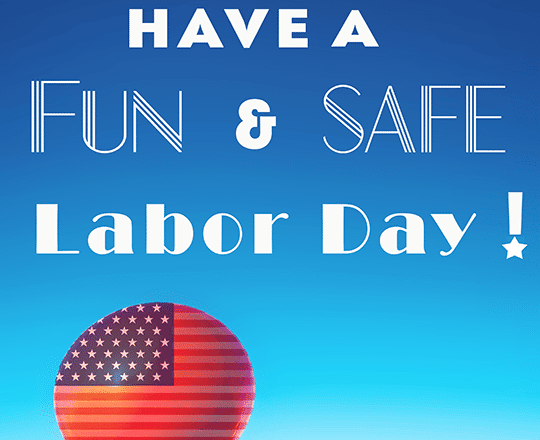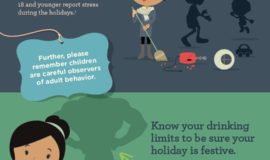Resources for Coping with Holiday Stress During Coronavirus
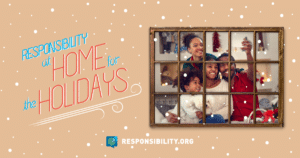
With the onset of the COVID-19 pandemic, we found ourselves living through an experience unprecedented in our lifetimes. Months later, many of us have been working from home and managing schooling for our kids (or both), or performing essential jobs on the frontlines. Our daily routines are disrupted and many of our typical social supports and coping strategies are less available to us while we continue to deal with a tremendous amount of uncertainty, fear, and stress. With the holidays upon us, our concerns are letting up. Holiday stress and seasonal affective disorder plague this time of year, no matter the circumstance. Now, we have additional stressors, so acknowledging them early and finding ways to cope with them is critical.
We need to balance joyfulness with mindfulness. We need to remember to exercise responsible behaviors at home to cope with stress, take care of ourselves, and pay close attention if we’re drinking alcohol—especially if and when our kids are present.
That’s why we’ve compiled the below list of resources to provide guidance on ways to manage that stress healthily and find ways to practice resiliency.
Thank you for joining us in practicing Responsibility at Home for the Holidays.
Mental Health Resources for the Holiday Season
- 6 Tips For Preserving Your Family’s Mental Health This Holiday Season (Tech Savvy Mama/Leticia Barr)
- Seasonal Depression Amplified: Being Vigilant About Mental Health As COVID-19 Meets The Holidays (CBS Los Angeles)
- Preparing for The Holidays During COVID-19 (Mental Health America)
- Stress, Depression and the Holidays: Tips for Coping (Mayo Clinic)
- Expert Shares Tips for Managing Holiday Stress During Pandemic (ABC San Francisco)
Ways to Model Resiliency for Ourselves and Our Families
- Send Joy During a Stressful Year with a Holiday Card (New York Times)
- Ten Tips for Resiliency to Help You through the Holidays (uOttowa)
- Beyond Coping with COVID: How to Find Joy in an Uncertain Holiday Season (Regence)
- Responsibility.org Influencers’ Advice on Talking to Your Kids about Alcohol during the Holidays
Traffic Safety during the Holidays
December is also National Impaired Driver Awareness Month. Perhaps the most dangerous drivers on the road, high-risk impaired drivers are at a higher crash risk, are disproportionately involved in fatal crashes, often escape accountability and typically become repeat DUI offenders. Learn more about these offenders and what research shows will be effective in deterring them.
Please also use our Virtual Bar to better understand how different factors affect your BAC depending on your gender, weight, the food you eat, and what and how you drink throughout the night, as well as other important variables. It also gives you a sense of how long it would take for your BAC to return to 0.00, which may be surprising.
Additional COVID-19 Resources for Stress Management
The YMCA has free workouts to watch and do from home, and Headspace is offering free access to meditation resources to help manage stress.
YMCA 360 - Online Exercise: YMCA 360 offers online exercise, fitness, wellbeing, and youth sports classes from the comfort of your own home. Popular classes like yoga, barre, bootcamp, tai chi, boxing, weightlifting, and soccer are free for you and your family.
Headspace: There are a lot of unknowns in the world right now. But one thing is certain — Headspace is here for you. To help you, they're offering some meditations you can listen to any time.
If you know someone who is working to recover from an alcohol use disorder, guide and encourage them to these on-line resources, and don’t hesitate to reach out to a local doctor if the situation demands immediate medical attention:
In addition, there are a number of free app-based recovery supports such as:
If you choose to drink, avoid overconsuming. Binge drinking, meaning having four or more drinks for women and five for men within a couple of hours, can temporarily impair your immune system and make it harder to repel or fight infections, including from COVID 19. Limit your consumption to avoid this, and drink from a positive place, such as to enjoy a meal or to spend special time with your loved ones.
For parents especially, your kids are likely with you a lot more than usual now, and they are watching you closely and learning. Continue modeling good coping strategies and behaviors and talk to them about what you’re doing. Parents are the number one influence on kids’ decisions to drink or not to drink alcohol. Take the time to educate them on your values and practices.

